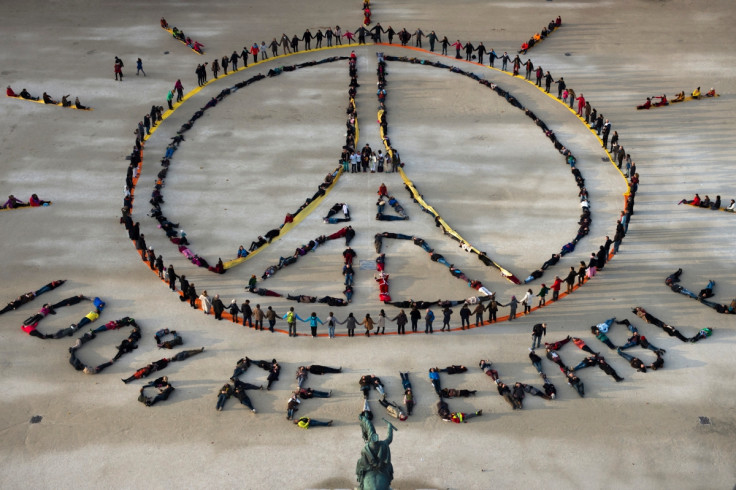COP21: Paris climate deal must protect future generations from our toxic legacy

I recently made a film, Ten Billion, that deals with the huge problems facing humanity as it builds over the next 40 years to a population of 10 billion. We all know about the dangers of climate change − although Earth has seen swings in temperature over the huge sweep of history, they didn't happen before since the planet has been so densely populated by our species.
Our film didn't stop at climate change because our problems run much deeper. It looks as if demand for food will double by 2050 due to population increases and changing diets. Demand for energy will triple by the end of the century, and water scarcity is likely to become increasingly acute as we use up our fossil water reservoirs and expand agricultural output.
Faced with these gloomy scenarios, what should we do? Do we solve a massive problem with minor behaviour change? Will taking a shower instead of a bath, buying a hybrid car or sorting our recycling save the world? I don't think so. Massive problems require massive solutions.
There was much self-congratulation among delegates at the Paris climate conference (COP21) over the weekend as international agreement on resolutions aimed at staving off climate change were reached. But will the COP21 resolutions really make a dent in the many problems we face?
One area where much was promised was halting the precipitous worldwide decline of the planet's rainforests.
Let's examine what has been done in this area recently. Over the past few years Norway, a major carbon emitter due to its huge petrochemical industry, has been involved in a well-funded deforestation pact with Indonesia. As Norway's former prime minister Jens Stoltenberg said: "By reducing deforestation, we can achieve the largest and the cheapest cuts in global greenhouse gas emissions."
He's right – but even this billion dollar initiative has only slowed deforestation to 1.6 million hectares per annum – hardly a triumph for carbon emissions and definitely not a triumph for biodiversity loss. Ask any orangutan burnt out of its forest home. In short, this is a well-meaning but utterly insignificant step.
On a planet-wide basis, are the massive solutions out there? Many are discussed, whether they be geo-engineering, revolutionary battery technologies, desalination breakthroughs or ground-breaking renewable energy developments. On closer inspection, however, many of these are far from proven and most are highly expensive. Solutions must be affordable, or they are not solutions.
In 1987, the Montreal Accord put forward a ban on CFCs as the world decided action had to be taken on the growing hole in the ozone layer. Nearly 30 years later, the ozone layer is slowly repairing itself. This holds two lessons. First, global action can succeed. Second, global action has long lead times. So we must start now.
Modern politics can fail us with short-termism. But worse, this fails the generations to come to whom we have a responsibility.
Politicians of all shades have long recognised our responsibilities to future generations. This awareness defies all left and right pigeon-holing: Mahatma Gandhi pointed out that; "The earth, the air, the land and the water are not an inheritance from our forefathers but on loan from our children." Margaret Thatcher likewise saw that: "No generation has a freehold on this Earth. All we have is a life tenancy − with a full repairing lease."
While we all recognise our responsibility to the future generations of our own families, we seem a bit more blasé about the future of humanity. But there is little point attempting to protect the inheritance of our children and grandchildren, while simultaneously condemning them to world ruined by pollution, climate change and a devastating loss of biodiversity. We are in danger of giving them a legacy that is literally toxic.
Of course promises about halting deforestation are worthy: instead of clearing and burning 78 million acres of forest a year as we are currently doing, we should be reforesting at exactly the same rate so we are back up to 1950 levels by 2050. This will halt the huge CO<sub>2 emissions from deforestation and gradually start to reabsorb some of the CO<sub>2 we are emitting from other sources.
Yet that is far more than has been promised at COP21. I'm afraid that COP21 will end up looking more like business as usual, than a genuine milestone in halting climate change. I hope I'm wrong.
Mark Bentley is head of drama at Oxford Film and Television. Ten Billion is available to watch on Now TV
© Copyright IBTimes 2025. All rights reserved.






















